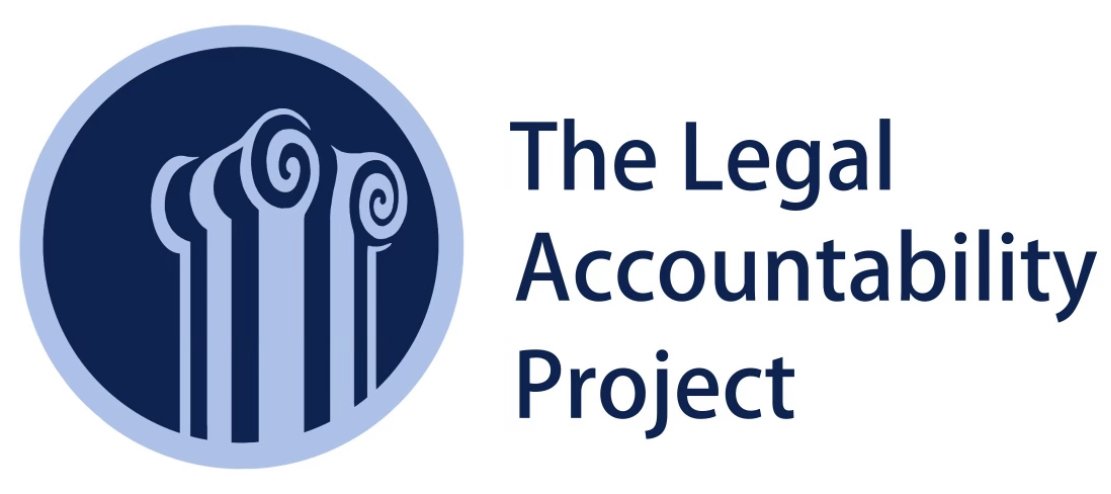LAP Pledge
Judges have been circulating LAP’s post-clerkship survey–which asks a variety of questions about judges as managers, chambers culture, and the clerkship experience–to their former and outgoing law clerks since 2023. The following judges have pledged to circulate LAP’s survey to their current and future clerks each year at the end of their clerkships:
Judge Douglas Nazarian, Appellate Court of Maryland (LAP Advisory Board member)
Presiding Judge Stephen Louis A. Dillard, Court of Appeals of Georgia (LAP Advisory Board member)
Chief Judge Erin C. Lagesen, Oregon Court of Appeals
Vice Chancellor J. Travis Laster, Delaware Court of Chancery (LAP Advisory Board member)
Justice Elizabeth Welch, Michigan Supreme Court
Judge Darleen Ortega, Oregon Court of Appeals
Judge Jacqueline S. Kamins, Oregon Court of Appeals
Judge Jeffrey Geller, Baltimore City Circuit Court
Judge Scott A. Shorr, Oregon Court of Appeals
Judge Ryan O’Connor, Oregon Court of Appeals
Judge Christopher P. Yates, Michigan Court of Appeals
Judge Dan Friedman, Appellate Court of Maryland
Judge Adrienne Young, Michigan Court of Appeals
LAP also appreciates support from:
Retired Chief Justice Bridget Mary McCormack, Michigan Supreme Court
Judge Mike Engelhart, 151st District, Harris County, Texas
Judge Karin Crump, 250th Civil District, Travis County, Texas
Why did LAP initiate the LAP Pledge?
LAP’s post-clerkship survey has been live at survey.legalaccountabilityproject.org since April 2023. We’ve amassed nearly 1,800 survey responses from law clerks nationwide and are the largest independent repository of clerkship information in the U.S.
We want the Clerkships Database to continue to grow and flourish, and to ensure it’s broadly representative of state and federal clerkships nationwide. Through the LAP Pledge, judges are making a front-end investment in improving their applicant pools, while also ensuring their clerks’ perspectives are included as applicants read reviews of judges in the Clerkships Database.
Clerkship hiring was historically shrouded in mystery. Judicial clerkships seem inaccessible to far too many law students and new attorneys. LAP created a marketplace for clerkship information: our free-market transparency model facilitates informed and discerning consumers of clerkship information and enables judges to compete for the best applicants by spotlighting positive work environments.
Help us democratize information about judges as managers, chambers culture, and a diversity of clerkship experiences by taking the LAP Pledge today!
The Ask:
Send LAP’s post-clerkship survey to your current and former clerks. The more surveys the Database contains, the more applicants will know about you before applying, which creates a comparative market advantage and improves your hiring.
Authorize LAP to note on our website that you have sent LAP’s survey to your clerks and pledged to send it to future clerks, so clerkship applicants know you’re a judge particularly committed to transparency in both your chambers culture and clerkship hiring practices.
Please note:
- LAP’s Database is not a public access website. The only individuals who can read surveys are clerkship applicants who registered for database access.
- The LAP Pledge should not be viewed as an endorsement of LAP. Rather, it’s an opportunity to publicly signal a commitment to the transparency and diversity principles that motive LAP’s Clerkships Database.
- Answers to some Frequently Asked Questions can be found here. We’re happy to speak individually with judges to answer any additional questions.
LAP views judges as important partners in our efforts to improve and diversify judicial clerkships. We welcome judges’ support in this effort to democratize judicial clerkship information.
I’m a judge and this sounds great! How can I take the LAP Pledge?
Email LAP’s President and Founder Aliza Shatzman at Aliza.Shatzman@legalaccountabilityproject.org to let us know you would like to take the LAP Pledge.
LAP’s President and Founder Aliza Shatzman with LAP advisory board members Judge Douglas Nazarian of the Appellate Court of Maryland and Karyn Polak at University of Maryland Carey Law.


